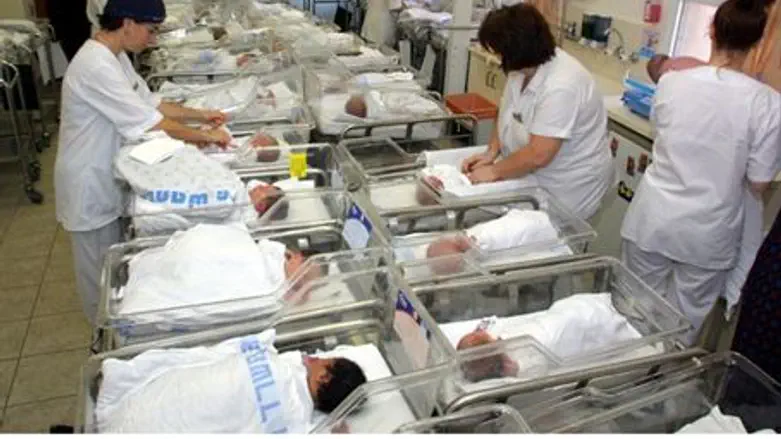
A demographic study in Israel analyzing the past 15 years shows a dramatic drop in Arab births per woman, a rise in births among secular Jewish women, and a continued very high rate among religious Jewish women.
Dr. Adam Reuter, writing on Arutz-7’s Hebrew site, presents a set of statistics showing that the dire predictions of an Arab demographic takeover of Israel that have become “common knowledge” are actually not true.
The statistics were compiled by the American-Israeli Demographic Research Group, including Dr. David Passig, Yoram Ettinger, and others. They have been presented to the National Security Council, IDF Intelligence, the Knesset Foreign Affairs and Defense Committee, the Prime Minister’s Office, Congress members in Washington, and countless others instrumental in shaping public policy in Israel and the U.S.
For one thing, the fertility gap between Arab and Jewish women dropped from six births per woman in 1969 to 0.7 in 2009. At the same time, the proportion of Jewish births has grown from 69% of total births in 1995 to 75% in 2008.
Secular women now give birth to an average of 2.6 babies, as opposed to their mothers, who bore only 2.1 children each.
Over the past 15 years, the number of Arab births in Israel has remained more or less steady at around 39,000, while Jewish births grew over this period from 80,000 to 120,000.
The number of Bedouin births has dropped drastically, by 30%, ever since a sharp cut in child allowance payments was introduced several years ago.
Of the 20% Arab minority in Israel, 3.5% are residents of eastern Jerusalem and do not have the right to vote in national elections; 2% are Druze, who serve in the army; and 2% are Christian Arabs.
Average aliyah in recent years has been 16,000 or more. The number of returning Israelis is balanced out by those leaving, about 11-12,000 of each – though Reuters predicts that the former will soon outweigh the latter by far, for various economic reasons and in the merit of Israel’s proactive programs to this end.
For more information, click here.